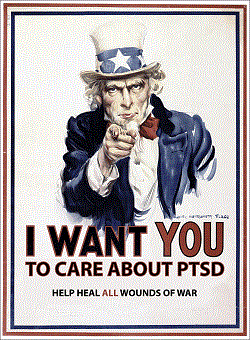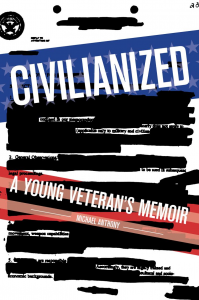What is PTSD?
Posttraumatic stress disorder, or more commonly known as PTSD, is a type of debilitating medical condition that usually occurs to individuals who have undergone a very traumatic incident.
A traumatic event is something terrible that you’ve seen, heard, or experienced first-hand. This includes:
- Exposure to war
- Terrorist incident
- Sexual assault
- Physical abuse
- Life-threatening accident
- Natural disasters such as hurricanes or earthquakes.
Most people experience symptoms such as extreme anxiety, difficulties in sleeping, or having nightmares after a traumatic incident. However, not everyone will have PTSD. You can only tell if you have the condition if the common symptoms get worse as time goes by.
How PTSD Develops
Everyone who has experienced a terrifying incident will have the common symptoms of anxiety during the early stages. However, only a handful will experience PTSD as time goes by. There is still no accurate answer as to why only some people develop PTSD in their lifetime.
There are several factors that might increase your chances of having this mental condition:
- The intensity of the trauma
- If you, or your loved ones, acquire major injuries after an accident or disaster
- Your proximity to the event
- The level of your reaction during the traumatic event
- Your level of control during the event
- The type and frequency of the support that you get after experiencing the traumatic event
Common Symptoms of PTSD
The symptoms of this debilitating mental condition commonly starts after the person experiences any terrifying incident. However, it will take months or years before these symptoms intensify. In addition, they may also disappear and reappear over several years.
Below is a list of the most common symptoms of PTSD. If these symptoms persist for more than a month, or if they are disrupting your work and home life routine, there’s a big chance that you have PTSD.
-
You keep re-experiencing/reliving the traumatic event
This usually occurs in the form of nightmares or horrifying memories. In some cases, you may also experience flashbacks. These are moments wherein you feel like you are going through the traumatic event again. Compared to a nightmare, flashbacks are usually more vivid.
-
You veer away from events that remind you of the traumatic experience
As much as possible, you try to avoid any situations (or even other people) that might trigger any bad memories. In addition, you may even attempt to stop thinking about the traumatic event.
-
Sudden negative changes on feelings and behavior
Because of the disturbing event that happened to you before, you may suddenly find yourself feeling a lot of guilt, fear, and shame. Another common symptom of PTSD is that your enthusiasms for activities that you loved doing in the past suddenly faded.
-
You feel too jittery
This excessive feeling of alertness is more commonly known as hyper arousal. Even if the environment is guaranteed 100% safe, your body remains tense and alert. In addition, you are always on the lookout for danger. Another symptom of hyper arousal is difficulty in sleeping or concentrating.
Can children also experience PTSD?
Sadly, even the little ones can also have PTSD when faced with horrifying experiences. The symptoms may be similar with the ones mentioned above, but there might still be slight changes depending on their age. Once the kids grow older, they will experience PTSD symptoms that are similar to that of the adults.
These are just some of the common signs that your children are experiencing PTSD:
- Kids age 6 years and below tend to feel upset when their parents are not around. They also tend to have some trouble sleeping or going to the comfort room by themselves.
- Kids age 7 to 11 relive their traumatic experiences stories and drawings. They also experience nightmares. As they grow up, they tend to become more aggressive. Kids who experience PTSD show disinterest in going to school and even playing with their friends.
- Kids age 12 and up experience PTSD symptoms that are similar to adults. This includes withdrawal, substance abuse, running away from home, and anxiety.
Other problems experienced by people with PTSD
It is not just the anxiety attacks, nightmares, and flashbacks that PTSD victims have to endure. Other problems that they might experience include:
- Extreme feelings of despair and shame
- Depression
- Substance abuse and alcoholism
- Chronic pain
- Problems with balancing work and home life
- Problems in maintaining good relationships with people
Usually, these other problems can be fixed when the patient undergoes the standard PTSD treatment because they are somewhat related. Once you master the coping skills from PTSD therapy sessions, it will be easier for you to handle these problems.
Civilianized: A Young Veteran’s Memoir
In this dark humored War Memoir, Iraq veteran Michael Anthony discusses his return from war and how he defeated his PTSD. Civilianized is a must read for any veteran, or anyone who knows a veteran, who has returned from war and suffered through Post-Traumatic Stress Disorder (PTSD).
“I wont soon forget this book.” -Mary Roach
“A must read.” -Colby Buzzell
“[S]mart and mordantly funny.” –Milwaukee Journal Sentinel
“Anthony delivers a dose of reality that can awaken the mind…” Bookreporter
Order your copy of Civilianized: A Young Veteran’s Memoir .

